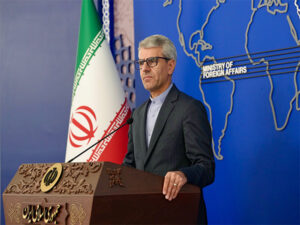Pakistan’s budget proposals: OICCI asks govt to abolish super tax
Islamabad, Jun 5 (PTI) As cash-strapped Pakistan struggles to increase tax base, the Overseas Investors Chambers of Commerce & Industries (OICCI) has asked the government to abolish super tax and bring trade, services, real estate and agriculture sector into the tax net in line with their share in the economy, a media report said on Monday.
The OICCI – which serves as a platform to promote foreign investments into Pakistan – presented its taxation proposals for 2023-24 budget to Finance Minister Ishaq Dar, the News International reported.
“The OICCI recommended the abolishment of super tax for all sectors and capping the corporate tax rate at 29 per cent. It suggested that no further increase in effective tax rate should be made as it is already greater than the regional competitive rates,” the paper reported.
The general rate for minimum tax should be reduced to 0.25 per cent and carry forward of minimum tax credit be allowed for at least 5 years as prior to 2022, recommended the OICCI.
The overseas chamber also recommended the simplification of the withholding tax regime, with existing 200 different tax rates for 24 WHT sections, to make it more convenient and business friendly.
Given the very high inflation impact on the low income group, OICCI also recommended that the annual income up to Rs 1.2 million be tax free as compared to the current Rs 0.6 million annually.
“The economy is currently under stress and GDP growth forecast including for large scale industries for the immediate near term is negative to marginally positive, which along with super high inflation and interest rates and fast weakening currency, has the potential to substantially dent the profitability of tax paying sectors next year,” said OICCI president Amir Paracha.
The forum stressed the urgency for broadening the tax base to boost revenue collection according to the proportionate share of each sector of the economy, especially trade, services, real estate and agriculture.
OICCI has estimated that with dedicated efforts to collect revenue from all segments of the economy, the tax-to-GDP ratio can be increased to 16 per cent from the current less than 10 per cent.
The suggestion comes as Pakistan was giving last touches to its budget 2023-24 amidst fears among the masses about new taxes being imposed to support the deteriorating economy of the country.
The News in another report on Sunday stated that Pakistan’s coalition government is likely to present a Rs 13-15 trillion budget for the fiscal year 2023-24.
Citing a budget preview report by Topline Securities, the paper reported that the government is expected to set the tax target of Rs 9-9.2 trillion, up by 21% from the Rs7.5 trillion target for the current fiscal year.
It should be noted that if set, the tax target for the financial year 2023-24 would be 29% higher than the expected tax collection in the outgoing FY23.
According to the report, it seems unlikely that the government will be able to complete the current International Monetary Fund (IMF) programme on time.
Cash-strapped Pakistan and the IMF have failed to reach a staff-level agreement on the much-needed USD 1.1 billion bailout package aimed at preventing the country from going bankrupt.
The funds are part of a USD 6.5 billion bailout package the IMF approved in 2019, which analysts say is critical if Pakistan is to avoid defaulting on external debt obligations.
Pakistan, currently in the throes of a major political as well as economic crisis, is grappling with high external debt, a weak local currency and dwindling foreign exchange reserves.






